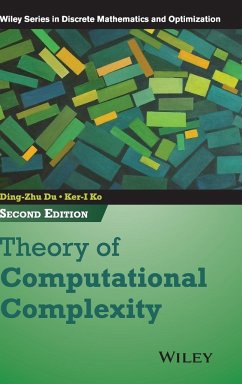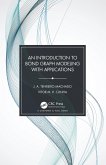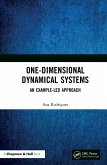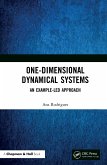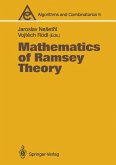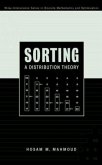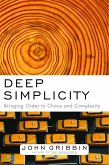A thorough revision based on advances in the field of computational complexity and readers' feedback, the Second Edition of Theory of Computational Complexity presents updates to the principles and applications essential to understanding modern computational complexity theory. The new edition continues to serve as a comprehensive resource on the use of software and computational approaches for solving algorithmic problems and the related difficulties that can be encountered.
Maintaining extensive and detailed coverage, Theory of Computational Complexity, Second Edition, examines the theory and methods behind complexity theory, such as computational models, decision tree complexity, circuit complexity, and probabilistic complexity. The Second Edition also features recent developments on areas such as NP-completeness theory, as well as:
A new combinatorial proof of the PCP theorem based on the notion of expander graphs, a research area in the field of computer science
Additional exercises at varying levels of difficulty to further test comprehension of the presented material
End-of-chapter literature reviews that summarize each topic and offer additional sources for further study
Theory of Computational Complexity, Second Edition, is an excellent textbook for courses on computational theory and complexity at the graduate level. The book is also a useful reference for practitioners in the fields of computer science, engineering, and mathematics who utilize state-of-the-art software and computational methods to conduct research. A thorough revision based on advances in the field of computational complexity and readers' feedback, the Second Edition of Theory of Computational Complexity presents updates to the principles and applications essential to understanding modern computational complexity theory. The new edition continues to serve as a comprehensive resource on the use of software and computational approaches for solving algorithmic problems and the related difficulties that can be encountered. Maintaining extensive and detailed coverage, Theory of Computational Complexity, Second Edition, examines the theory and methods behind complexity theory, such as computational models, decision tree complexity, circuit complexity, and probabilistic complexity. The Second Edition also features recent developments on areas such as NP-completeness theory, as well as: A new combinatorial proof of the PCP theorem based on the notion of expander graphs, a research area in the field of computer science Additional exercises at varying levels of difficulty to further test comprehension of the presented material End-of-chapter literature reviews that summarize each topic and offer additional sources for further study Theory of Computational Complexity, Second Edition, is an excellent textbook for courses on computational theory and complexity at the graduate level. The book is also a useful reference for practitioners in the fields of computer science, engineering, and mathematics who utilize state-of-the-art software and computational methods to conduct research.
Hinweis: Dieser Artikel kann nur an eine deutsche Lieferadresse ausgeliefert werden.
Maintaining extensive and detailed coverage, Theory of Computational Complexity, Second Edition, examines the theory and methods behind complexity theory, such as computational models, decision tree complexity, circuit complexity, and probabilistic complexity. The Second Edition also features recent developments on areas such as NP-completeness theory, as well as:
A new combinatorial proof of the PCP theorem based on the notion of expander graphs, a research area in the field of computer science
Additional exercises at varying levels of difficulty to further test comprehension of the presented material
End-of-chapter literature reviews that summarize each topic and offer additional sources for further study
Theory of Computational Complexity, Second Edition, is an excellent textbook for courses on computational theory and complexity at the graduate level. The book is also a useful reference for practitioners in the fields of computer science, engineering, and mathematics who utilize state-of-the-art software and computational methods to conduct research. A thorough revision based on advances in the field of computational complexity and readers' feedback, the Second Edition of Theory of Computational Complexity presents updates to the principles and applications essential to understanding modern computational complexity theory. The new edition continues to serve as a comprehensive resource on the use of software and computational approaches for solving algorithmic problems and the related difficulties that can be encountered. Maintaining extensive and detailed coverage, Theory of Computational Complexity, Second Edition, examines the theory and methods behind complexity theory, such as computational models, decision tree complexity, circuit complexity, and probabilistic complexity. The Second Edition also features recent developments on areas such as NP-completeness theory, as well as: A new combinatorial proof of the PCP theorem based on the notion of expander graphs, a research area in the field of computer science Additional exercises at varying levels of difficulty to further test comprehension of the presented material End-of-chapter literature reviews that summarize each topic and offer additional sources for further study Theory of Computational Complexity, Second Edition, is an excellent textbook for courses on computational theory and complexity at the graduate level. The book is also a useful reference for practitioners in the fields of computer science, engineering, and mathematics who utilize state-of-the-art software and computational methods to conduct research.
Hinweis: Dieser Artikel kann nur an eine deutsche Lieferadresse ausgeliefert werden.

